Thomas Brown - Lectures on the Philosophy of the Human Mind (Vol. 1 of 3)
Здесь есть возможность читать онлайн «Thomas Brown - Lectures on the Philosophy of the Human Mind (Vol. 1 of 3)» — ознакомительный отрывок электронной книги совершенно бесплатно, а после прочтения отрывка купить полную версию. В некоторых случаях можно слушать аудио, скачать через торрент в формате fb2 и присутствует краткое содержание. Жанр: foreign_antique, foreign_prose, на английском языке. Описание произведения, (предисловие) а так же отзывы посетителей доступны на портале библиотеки ЛибКат.
- Название:Lectures on the Philosophy of the Human Mind (Vol. 1 of 3)
- Автор:
- Жанр:
- Год:неизвестен
- ISBN:нет данных
- Рейтинг книги:5 / 5. Голосов: 1
-
Избранное:Добавить в избранное
- Отзывы:
-
Ваша оценка:
- 100
- 1
- 2
- 3
- 4
- 5
Lectures on the Philosophy of the Human Mind (Vol. 1 of 3): краткое содержание, описание и аннотация
Предлагаем к чтению аннотацию, описание, краткое содержание или предисловие (зависит от того, что написал сам автор книги «Lectures on the Philosophy of the Human Mind (Vol. 1 of 3)»). Если вы не нашли необходимую информацию о книге — напишите в комментариях, мы постараемся отыскать её.
Lectures on the Philosophy of the Human Mind (Vol. 1 of 3) — читать онлайн ознакомительный отрывок
Ниже представлен текст книги, разбитый по страницам. Система сохранения места последней прочитанной страницы, позволяет с удобством читать онлайн бесплатно книгу «Lectures on the Philosophy of the Human Mind (Vol. 1 of 3)», без необходимости каждый раз заново искать на чём Вы остановились. Поставьте закладку, и сможете в любой момент перейти на страницу, на которой закончили чтение.
Интервал:
Закладка:
These observations of Mr Locke illustrate, very happily, the importance of a right view of the limits of our understanding, for directing our inquiries to the objects that are truly within our reach. It is not the waste of intellect, as it lies torpid in the great multitude of our race, that is alone to be regretted in relation to science, which in better circumstances, it might improve and adorn. It is in many cases, the very industry of intellect, busily exerted, but exerted in labours that must be profitless, because the objects, to which the labour is directed, are beyond the reach of man. If half the zeal, and, I may add, even half the genius, which, during so many ages, were employed in attempting things impossible, had been given to investigations, on which the transcendental inquirers of those times would certainly have looked down with contempt, there are many names that are now mentioned only with ridicule or pity, for which we should certainly have felt the same deep veneration, which our hearts so readily offer to the names of Bacon and Newton; or perhaps even the great names of Bacon and Newton might, in comparison with them, have been only of secondary dignity. It was not by idleness that this high rank of instructors and benefactors of the world was lost, but by a blind activity more hurtful than idleness itself. To those who never could have thought of numbering the population of our own little globe, it seemed an easy matter to number, with precise arithmetical accuracy, the tribes of angels, and to assign to each order of spiritual beings its separate duties, and separate dignities, with the exactness of some heraldic pomp; and, amid all those visible demonstrations of the Divinity which surround us wherever we turn our view, there were minds that could think in relation to him, of every thing but his wisdom and goodness; as if He who created us, and placed around us this magnificent system of things, were an object scarcely worthy of our reverence, till we had fixed his precise station in our logical categories, and had determined, not the majestic relations which he bears to the universe, as created and sustained by his bounty, but all the frivolous relations which he can be imagined to bear to impossibilities and nonentities.
O, son of earth! attempt ye still to rise,
By mountains pil'd on mountains, to the skies!
Heaven still, with laughter, the vain toil surveys,
And buries madmen in the heaps they raise. 8 8 Pope's Essay on Man, Ep. iv. v. 73–76.
It is, indeed, then, to borrow Mr Locke's metaphor, of no slight importance to know the length of our line, though we cannot, with it, fathom all the depths of the ocean. With the knowledge, that, to a certain depth at least, we may safely confide in it, we shall not be corrupted, by our fear, to coast along the shore, with such cautious timidity as to lose all the treasures which might be obtained by a more adventurous voyage; nor tempted in the rashness of ignorance or despair, to trust ourselves wildly to every wind, though our course should be amidst rocks and quicksands.
The study of the natural limits of the faculties of the mind, has, indeed, sometimes been misrepresented, as favouring a tendency to vague and unlimited doubt on all subjects, even on those most important to individual and social happiness; as if the great names, to which we have long given our admiration, for the light which they have thrown on the powers and weaknesses of the human understanding, were not also the very names which we have been accustomed, not to admire merely, but to venerate, for excellence of a still nobler kind. Far from leading to general scepticism, it is, on the contrary, a sound study of the principles of our intellectual and moral nature, which alone can free from the danger of it. If the sceptical philosophy be false, as the assertors of this objection will allow that it most assuredly is, it can be overcome and destroyed only by a philosophy that is true; and the more deeply, and the more early, the mind is embued with the principles of truth, the more confidently may we rely on its rejection of the errors that are opposed to them. It is impossible for one, who is not absolutely born to labour, to pass through life without forming, in his own mind, occasionally, some imperfect reflections on the faculties by which he perceives and reasons; or without catching, from those with whom he may associate, some of those vague notions, of a vague philosophy, which pass unexamined from mind to mind, and become current in the very colloquial language of the day. The alternatives, therefore, (if we can, indeed, think of any other alternative when truth is one,) are not those of knowledge and absolute ignorance of the mental phenomena, but of knowledge more or less accurate; because absolute ignorance, even though it were a state to be wished, is beyond our power to preserve, in one who enjoys, in any respects, the benefit of education and liberal society. We might, with much greater prospect of success, attempt, by merely keeping from his view all professed treatises on Astronomy, to prevent him from acquiring that slight and common acquaintance with the system of the heavenly bodies, which is necessary for knowing that the sun does not go round the earth, than we could hope to prevent him from forming, or receiving, some notions, accurate or inaccurate, as to the nature of mind; and we surely cannot suppose, that the juster those opinions are, as to the nature and force of the principles of belief, the feebler must the principles of belief appear. It is not so, that nature has abandoned us, with principles which we must fear to examine, and with truths and illusions which we must never dare to separate. In teaching us what our powers are incapable of attaining, she has at the same time, taught us what truths they may attain; and within this boundary, we have the satisfaction of knowing, that she has placed all the truths that are important for our virtue and happiness. He, whose eyes are the clearest to distinguish the bounding circle, cannot surely, be the dullest to perceive the truths that are within. To know only to doubt, is but the first step in philosophy; and to rest at this first step, is either imbecility or idleness. It is not there that Wisdom sees, and compares, and pronounces; it is Ignorance, that, with dazzled eyes, just opening from the darkness of the night, perceives that she has been dreaming, without being able to distinguish, in the sunshine, what objects really existing are around. He alone is the philosopher truly awake, who knows both how to doubt, and how to believe; believing what is evident on the very same principles, which lead him to doubt, with various degrees of uncertainty, where the evidence is less sure. To conceive, that inquiry must lead to scepticism, is itself a species of scepticism, as to the power and evidence of the principles to which we have given our assent, more degrading, because still more irrational, than that open and consistent scepticism which it dreads. It would, indeed, be an unworthy homage to truths, which we profess to venerate, to suppose, that adoration can be paid to them only while we are ignorant of their nature; and that to approach their altars would be to discover, that the majestic forms, which seem animated at a distance, are only lifeless idols, as insensible as the incense which we have offered to them.
The study of the powers and limits of the understanding, and of the sources of evidence in external nature and ourselves, instead of either forming or favouring a tendency to scepticism, is then, it appears, the surest, or rather the only mode, of removing the danger of such a tendency. That mind may soon doubt even of the most important truths, which has never learned to distinguish the doubtful from the true. But to know well the irresistible evidence on which truth is founded, is to believe in it, and to believe in it forever.
Читать дальшеИнтервал:
Закладка:
Похожие книги на «Lectures on the Philosophy of the Human Mind (Vol. 1 of 3)»
Представляем Вашему вниманию похожие книги на «Lectures on the Philosophy of the Human Mind (Vol. 1 of 3)» списком для выбора. Мы отобрали схожую по названию и смыслу литературу в надежде предоставить читателям больше вариантов отыскать новые, интересные, ещё непрочитанные произведения.
Обсуждение, отзывы о книге «Lectures on the Philosophy of the Human Mind (Vol. 1 of 3)» и просто собственные мнения читателей. Оставьте ваши комментарии, напишите, что Вы думаете о произведении, его смысле или главных героях. Укажите что конкретно понравилось, а что нет, и почему Вы так считаете.
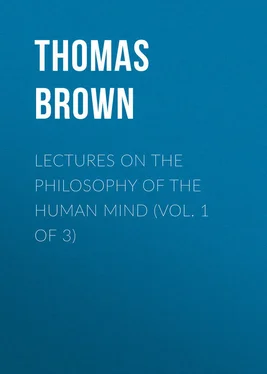


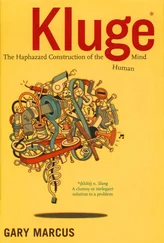

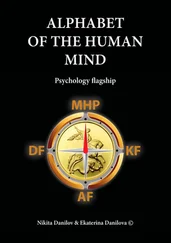


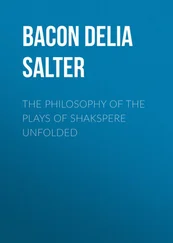
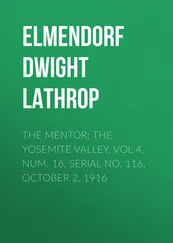


![Anne Blunt - A Pilgrimage to Nejd, the Cradle of the Arab Race. Vol. 1 [of 2]](/books/749489/anne-blunt-a-pilgrimage-to-nejd-the-cradle-of-the-thumb.webp)